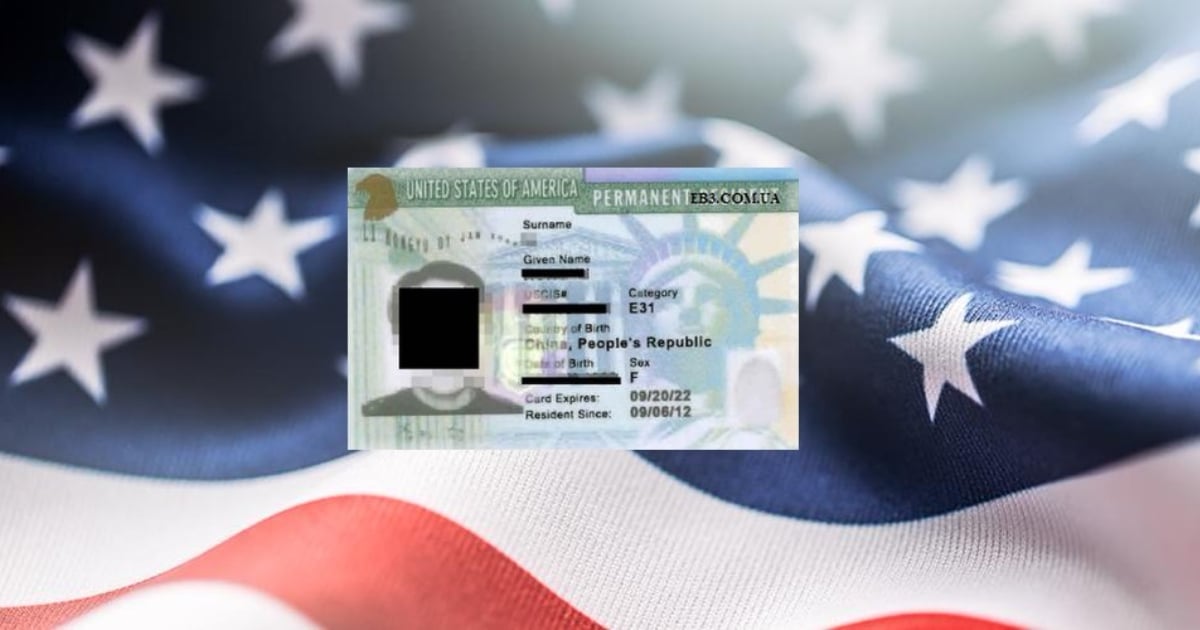The U.S. government has put a stop to processing residency applications for beneficiaries of the Humanitarian Parole and other immigration programs initiated under President Joe Biden's administration. A memo obtained by CBS News reveals that this decision affects tens of thousands of Cubans who entered the U.S. through the parole system. The pause will remain in effect while authorities investigate potential fraud cases and bolster verification procedures.
According to the U.S. Citizenship and Immigration Services (USCIS) document, the halt is due to "current inadequacies in identifying fraud and public or national security concerns within USCIS adjudication systems." Previous investigations, including those during Biden's tenure, uncovered thousands of CHNV program applications with "serial sponsors," deceased individuals' data, and repeated addresses, some confirmed as fraudulent.
Journalist Mario Pentón also confirmed the development on social media platform X: "Trump seeks to freeze green cards for immigrants who entered with parole during the Biden era."
Ripple Effect on Cuban Migrants and Other Beneficiaries
This move significantly impacts Cubans who entered the U.S. under humanitarian parole. Currently, they are unable to pursue residency under the Cuban Adjustment Act, leaving them in a precarious immigration limbo. Although Cubans granted parole can apply for green cards, the USCIS directive now prevents processing any applications from migrants admitted under Biden's specific policies.
The suspension affects several initiatives that utilized parole for rapid foreign admissions on humanitarian or public interest grounds. Impacted programs include:
- Uniting for Ukraine, which facilitated the entry of approximately 240,000 Ukrainians with U.S. sponsors.
- The CHNV program, easing entry for 530,000 Cubans, Haitians, Nicaraguans, and Venezuelans.
- Parole programs for Colombian, Ecuadorian, Central American, and Cuban family members, allowing them to await residency in the U.S.
Lynden Melmed, former chief counsel for USCIS during George W. Bush's administration, warned of the decision's repercussions: "This effectively freezes their ability to switch to another legal status. Meanwhile, they remain at risk of deportation if the government revokes their parole status," he told Cubanet.
The measure could be reversed once officials complete a "comprehensive review and assessment of the population of foreign nationals admitted to the United States under these programs."
Humanitarian Parole: Numbers and Obstacles
Before being abolished in January by the Trump administration, the humanitarian parole for Cuban migrants saw a sharp decline due to only 10 island natives receiving travel permission under this program in December 2024, with none successfully reaching the U.S. that month.
U.S. Customs and Border Protection (CBP) data reveals that though 10 Cubans were granted travel parole in December 2024, none managed to travel during that period. Effectively, no Cubans have arrived since October. Despite approving the entry of over 531,690 individuals from these countries in recent months, the number of Cubans benefitting remains significantly low.
By the end of December 2024, only 110,970 Cubans were authorized to travel under parole. Yet, recent approvals have stalled due to logistical hurdles and a lack of available commercial flights. Specifically, 110,970 Cubans; 213,150 Haitians; 96,270 Nicaraguans; and 120,760 Venezuelans were screened and authorized, with 110,240 Cubans, 211,040 Haitians; 93,070 Nicaraguans; and 117,330 Venezuelans arriving and being paroled.
Frequently Asked Questions about the U.S. Immigration Program Suspension
Why did the U.S. halt green card processing for Humanitarian Parole recipients?
The halt is due to inadequacies in identifying fraud and security concerns within USCIS systems, prompting a review of procedures.
Which groups are most affected by this decision?
Cubans, Haitians, Nicaraguans, and Venezuelans who entered the U.S. under specific Biden-era programs are primarily affected.
What is the potential for reversing this suspension?
The measure could be reversed following a comprehensive review of the foreign nationals admitted under these programs.
